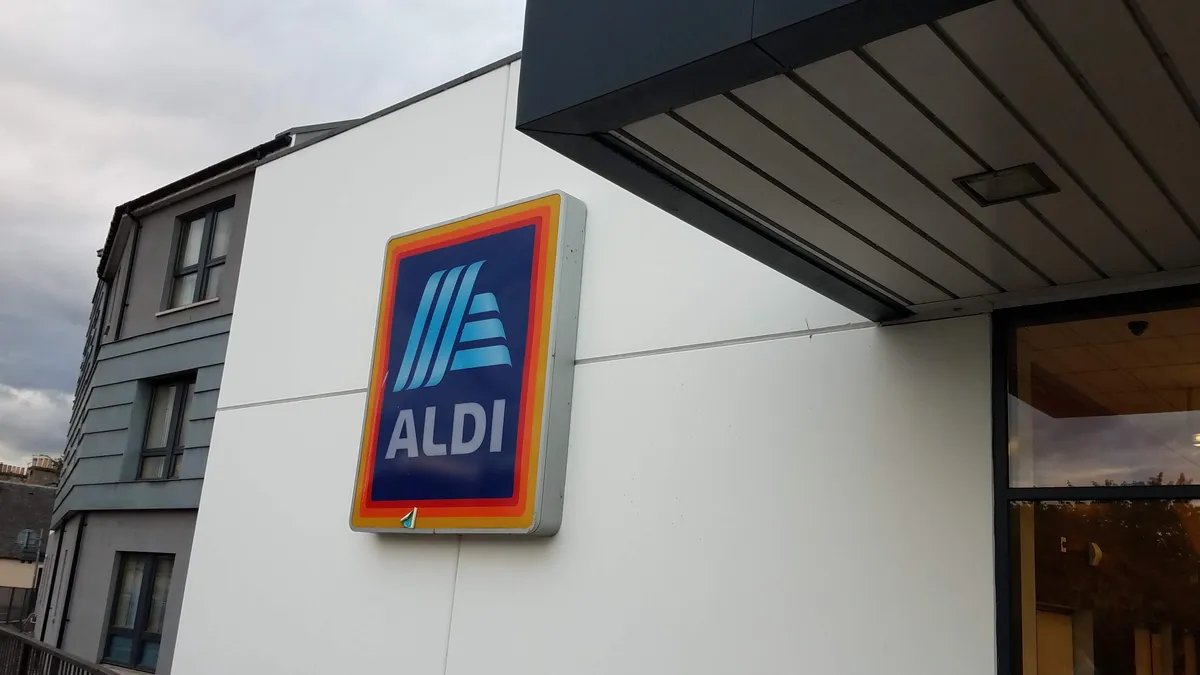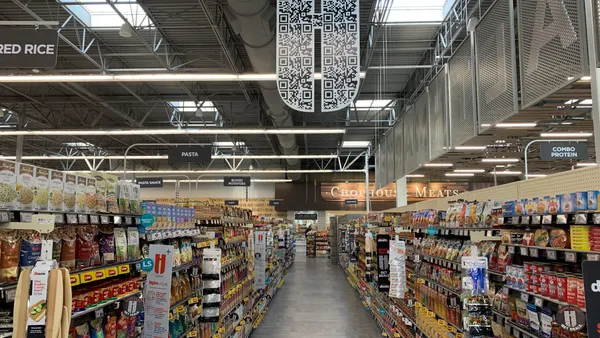Dive Brief:
- Aldi is considered easier to navigate, faster and a more enjoyable experience compared to other grocery retailers including Walmart, according to a new study from Kantar commissioned by Aldi.
- Of those surveyed, 77% of primary shoppers who shopped at Aldi agree the store is simpler to shop. Ninety percent of the survey respondents agreed that Aldi was more cost-effective than other grocery stores, and 20% said it is faster to shop at Aldi than Kroger or Walmart.
- The study attributed the fun customer experience Aldi provides to its mix of nearly 100 unique Aldi Finds the store offers each week.
Dive Insight:
The simplicity of Aldi’s format and its focus on streamlining the grocery shopping experience while offering deeply discounted prices is compelling to many consumers in an era where they are bombarded with grocery and e-commerce options. With its laser focus on growth, Aldi could be promoting the results of this new study to highlight the experience for consumers who haven’t tried its stores.
Aldi's specific call-out of Walmart and Kroger in the study reveals the discounter's key competitors. Walmart U.S. CEO Greg Foran also admitted he has a fierce competitor in Aldi at an industry conference in March, remarking that Aldi is "fierce" and "good" and that he does not underestimate them.
With an average footprint of 12,000-square-feet, some shoppers may find the scaled-down size refreshing compared to the staggering footprint of large supermarkets an supercenters. Part of Aldi’s appeal is based on the no-frills store format where product assortment is limited, with an average of 1,400 items compared to 40,000 at traditional supermarkets and 100,000 at Walmart supercenters, according to CNN.
In the press release, Aldi said it only sells the most popular varieties and sizes of each product to give customers confidence in their purchase. In addition to limiting its selection, the German discounter highlights fan favorites, pushes private label products, which make up 90% of the store, and imports products that other retailers won’t have.
Aldi is on a mission to soften its image as a hard discounter, which started in 2017 with an announcement that it would allocate $5 billion over a five-year period to add hundreds of new stores and remodel existing ones. Today, Aldi is putting pressure on Walmart and other big box stores and is aiming to become the third largest U.S. supermarket chain following Walmart and Kroger by the end of 2022 if it reaches its projection of 2,500 stores.












